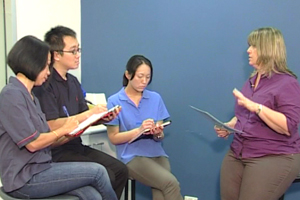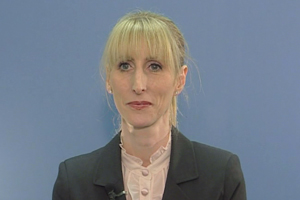Culture and the Health Workplace
In the health workplace there is a particular culture that will vary from place to place, often depending on how large the facility is (e.g., large city hospital vs. small community service), what kind of care is being provided (e.g., aged care vs. critical care), and how well the staff and patients know each other (e.g., oncology vs. outpatients).
Health professions such as nursing and medicine develop their own cultures with various assumptions, values, beliefs and priorities. Just as for culture more generally, these assumptions, values, beliefs and priorities may not always be shared by everyone belonging to that culture, especially when a health professional’s personal culture intersects with their professional identity and behaviour. Sometimes health cultures can be ethnocentric by assuming that other ways of doing things are wrong or inferior - rather than merely different. This can lead to discriminating behaviours against those a dominant majority see as inferior or different.
It can be difficult for newcomers to understand the norms that are at play in a workplace environment or any other new cultural environment. Norms are standard behavioural expectations and rules but these are not always explicit - sometimes they are unspoken and members of a group may be blind to the fact that newcomers may not be able to read or see the social cues (signs) that they take for granted.
It is also true that although cultures have norms these are not always followed by members of a culture at all times. For example in some cultures social behaviour is very much determined by the relationship of people to one another and their relative ages or social status. It would be highly inappropriate for younger people in some cultures not to treat older people with special deference…that is they treat them differently to how they would treat someone of their own age. Such norms could cause problems for an international student who may feel unsure of how or if to approach an older patient or fellow professional in the workplace. Read more about culture and the health workplace
Understanding health workplace culture: Hints and tips for students
- Wherever you are working, you will be expected to be professional and competent - this means dressing and acting professionally, and ensuring that you provide high quality care for patients.
- You are also expected to be patient, kind and caring, and non-judgemental - this is all part of being a health professional. The patient is the most important person in the Australian healthcare system and their interests and needs should always be central to the work you do.
- In Australia, health professionals (including student health professionals) communicate directly with each other about issues regarding the patients for whom they are providing care. The means that nurses communicate directly with doctors and other members of the health care team and, as a student health professional, this will also be expected of you.
- Other expectations include being on time, organised, prepared for the responsibilities of one’s role and helping and supporting other members of your team, eg. fellow students, staff in the ward etc.
- Healthcare is considered a serious issue by the people in Australia and is an important responsibility of governments and healthcare professionals. It is important to remember that the safety of patients is the most important thing in Australian healthcare. Patients are at the centre of Australian healthcare and staff play a variety of roles in promoting their best interests.
- All patients have the right to privacy and confidentiality and it is essential that these rights are protected by carefully protecting information of a personal nature. Sharing patient information violates nursing ethical codes and professional practice standards.
Watch these Videos for advice from students and clinical staff about adapting to Australian health workplaces.









